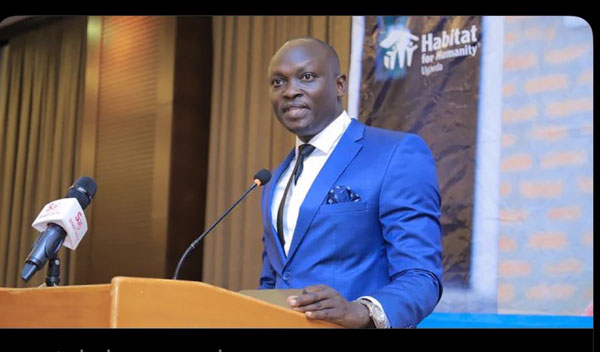
Kampala, Uganda | THE INDEPENDENT | Habitat for Humanity, an international charity that pushes for safe housing, has raised a concern that while Uganda has a batch of good laws and policies, these still cannot solve the inequalities that exist in the country’s settlements.
Speaking to journalists during a meeting held at Fairway Hotel in Kampala on Wednesday, Paul Mayende, an official at the organization’s Uganda office listed half a dozen approved guiding documents that have provisions on informal settlements but said when they did a survey in selected Kampala slums, they found these to be largely not biting.
Some of the policies listed include the National Housing Policy which was updated in 2016, the National Urban Policy 2017, and the National Human Settlements Policy.
He for instance says, according to the law, providing water is a mandate of the government but when they did spot check in the slums, over 95% didn’t have proper sanitation facilities.
The organization has launched an affordable housing support campaign dubbed Home Equals that runs until 2028 where they plan to have reached 10,000 slum dwellers in Kisenyi, Kamwokya, and Mutungo among others with access to water and sanitation in addition to land tenure security.
Before launching the campaign, the organization had held discussions with slum dwellers and found that collaboration between residents and their leadership was largely lacking.
They also found that the biggest percentage are overcrowding and live below the recommended housing standard of no more than two persons per room.
Robert Otim, Habitat of Humanity’s Uganda National Director, says that the picture in the slums they sampled is not very different from elsewhere in the country as there is already a housing deficit.
He says for Uganda to change this status quo, there is a need to build 200,000 housing units annually yet currently, the sector only provides about 60,000 units.
However, apart from Uganda, the Home Equals campaign is happening in seven other countries including Bulgaria, Cambodia, Bangladesh, and Malawi.
*****
URN
 The Independent Uganda: You get the Truth we Pay the Price
The Independent Uganda: You get the Truth we Pay the Price



